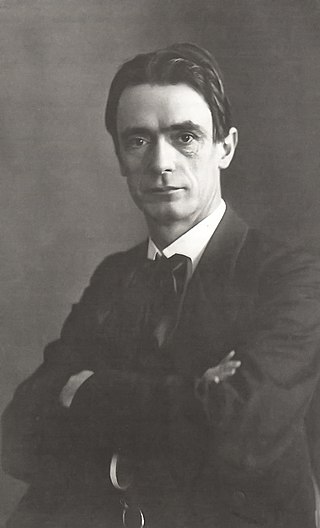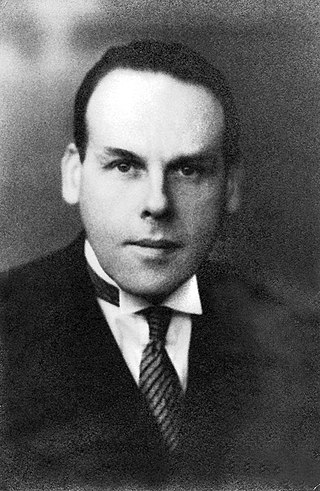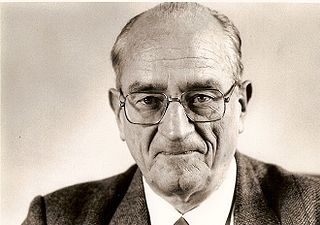
Carlo Pietzner (1915-986) was a co-founder of Camphill, artist, anthroposophist, and a Special Needs and adult educator.

Carlo Pietzner (1915-986) was a co-founder of Camphill, artist, anthroposophist, and a Special Needs and adult educator.
Pietzner was born in 1915 in Vienna. He spent his youth in that city in the years between the two wars and completed his art studies at the Kunstgewerbschule, (today the University of Applied Arts Vienna), meeting there, amongst others Robert Musil and Oskar Kokoshka. His family ran a photographic studio, which his sister later took over. Through his friend Peter Roth he was introduced to Dr Karl König and joined the youth group that had gathered around him. This group met for the last time in Vienna on March 11, 1938, at the time of the Nazi occupation. The members left Austria along various routes to come together again in Aberdeen and found Camphill. Carlo arrived there in 1941 and was shortly thereafter interned in Canada. [1] He became the Principal of Heachcot School that cared for about 50 severely disabled individuals and already there pioneered a color and light therapy that he later developed together with Edmund Pracht. [2]
In 1954 he was asked to start the Camphill work in Glencraig, Northern Ireland, becoming increasingly involved in the training and administrative work of the international Camphill movement. In 1961 he moved to the United States with his family and a small group of co-workers to lead the expansion of Camphill on that continent beginning with Camphill Village Copake. In 1963 he helped found Camphill Beaver Run focusing his attention on community development work, artistic activity and lecturing.
Besides his work in Camphill, he was active in building up the local and international work of the Anthroposophical Society, serving on its American Council in the 1960s and again between 1981-1983 and supporting the founding of the Section for Curative Education and Social Therapy in Dornach, Switzerland within the Medical Section of the School of Spiritual Science.
In the 1970s Carlo initiated art retreats for Camphill coworkers, wrote and directed plays to develop the cultural life of the communities, wrote books and poetry, produced a large number of paintings and sketches and took on stained glass commissions for Camphill Halls in Germany, Switzerland, Norway and other countries. He provided architectural guidance for many buildings and concerned himself with the artistic and innovative formation of social and community life in Camphill.
Under his leadership the Camphill Association of North America was formed in 1983, which he directed until his death in 1986. He had already begun to withdraw from active involvement in Copake, making way for a younger generation of leaders. His lecturing and training activities continued amongst a growing circle of friends and acquaintances all over the world.
Anthroposophy is a spiritualist movement which was founded in the early 20th century by the esotericist Rudolf Steiner that postulates the existence of an objective, intellectually comprehensible spiritual world, accessible to human experience. Followers of anthroposophy aim to engage in spiritual discovery through a mode of thought independent of sensory experience. While much of anthroposophy is pseudoscientific, proponents claim to present their ideas in a manner that is verifiable by rational discourse and say that they seek precision and clarity comparable to that obtained by scientists investigating the physical world.

Rudolf Joseph Lorenz Steiner was an Austrian occultist, social reformer, architect, esotericist, and claimed clairvoyant. Steiner gained initial recognition at the end of the nineteenth century as a literary critic and published works including The Philosophy of Freedom. At the beginning of the twentieth century he founded an esoteric spiritual movement, anthroposophy, with roots in German idealist philosophy and theosophy. His teachings have been described as similar to Christian Gnosticism. Many of his ideas are pseudoscientific. He was also prone to pseudohistory.

Walter Johannes Stein was an Austrian philosopher, Waldorf school teacher, Grail researcher, and one of the pioneers of anthroposophy.
The Camphill Movement is an initiative for social change based on the principles of anthroposophy. Camphill communities are residential communities and schools that provide support for the education, employment, and daily lives of adults and children with developmental disabilities, mental health problems, or other special needs.
Karl König was an Austrian paediatrician who founded the Camphill Movement, an international movement of therapeutic intentional communities for those with special needs or disabilities.
Social organism is a sociological concept, or model, wherein a society or social structure is regarded as a "living organism". The various entities comprising a society, such as law, family, crime, etc., are examined as they interact with other entities of the society to meet its needs. Every entity of a society, or social organism, has a function in helping maintain the organism's stability and cohesiveness.
Eugen Kolisko was an Austrian-German physician and educator who was born in Vienna. He studied medicine at the University of Vienna, and in 1917 became a lecturer of medical chemistry. He was the son of pathologist Alexander Kolisko (1857-1918).

Jörgen Smit was a Norwegian teacher, teachers teacher, speaker and writer, mainly in the context of the Anthroposophical Society and the Waldorfschool Movement. He was the general secretary of the Norwegian Anthroposophical Society, co-founder of the Rudolf Steiner Seminar in Järna, Sweden and member of the Executive Council of the General Anthroposophical Society at the Goetheanum in Dornach, Switzerland.
Peter Selg is a German psychiatrist. He was born in Stuttgart and studied medicine in Witten-Herdecke, Zurich, and Berlin. Until 2000, he worked as the head physician of the juvenile psychiatry department of Herdecke hospital in Germany. Selg is director of the Ita Wegman Institute for Basic Research into Anthroposophy and professor of medicine at the Alanus University of Arts and Social Sciences (Germany). He lectures extensively and is the author of numerous books.
Thomas Weihs was an Austrian doctor, farmer and special needs educator, one of the founders and leading co-workers of the Camphill Movement and a pioneer of Anthroposophical curative education.
Alfred Cecil Harwood *05.01.1898 London (UK) †22.12.1975 Forest Row Sussex was a lecturer, Waldorf teacher, writer, editor and anthroposophist.
Michael Wilson, was a musician, curative educator, scientist, translator and General Secretary of the Anthroposophical Society in Great Britain
Carl Friedrich Wilhelm "Fried" Geuter, was a pioneer of anthroposophical Special Needs education, the co-founder of Sunfield Children's Home and teacher at the Ravenswood Village Settlement near Crowthorne in Berkshire.
Rudi Lissau, born 26 June 1911 in Vienna and died 30 January 2004 in Brookthorpe, United Kingdom, was a Steiner school teacher, author, lecturer and anthroposophist.
Eleanor Merry, was an English poet, artist, musician and anthroposophist with a strong Celtic impulse and interest in esoteric wisdom. She studied in Vienna and met Rudolf Steiner in 1922 after becoming interested in his teachings. She went on to organize Summer Schools at which Steiner gave important lectures, and was secretary for the World Conference on Spiritual Science in London in 1928.

Clive Robbins, was a British music therapist, Special Needs educator, anthroposophist and co-founder of Nordoff-Robbins music therapy.
Sunfield is an Independent special school, Children's Home and charity on the border of Worcestershire and the West Midlands in England. It was founded in 1930 and now supports boys and girls, aged 6 – 19 years, with complex learning needs, including autism.
Dr Hans Schauder, was a British medical adviser and counsellor, co-founder of Camphill Community, founder of Garvald School & Training Centre
The Garvald Centres are a group of six affiliated but independent Scottish charities that support people with special needs and learning disabilities. It is based on the work of the Austrian esotericist Rudolf Steiner. The charities operate in the Midlothian, Scottish Borders and Edinburgh area of Scotland.
Emil Fröschels was an Austrian speech and voice therapy specialist. As a laryngologist and chief speech therapist, in 1924 he introduced the term logopedics into medical usage. He established the International Society of Logopedics and Phoniatrics and was a co-founder, with Karl Cornelius Rothe, of the Vienna School for Speech-Disturbed Children.